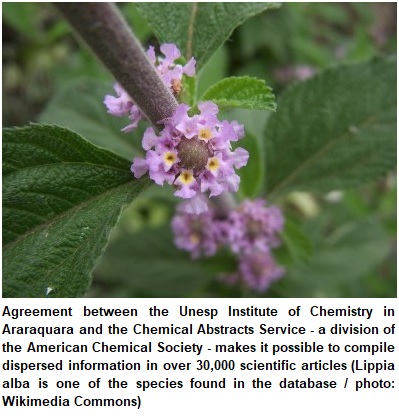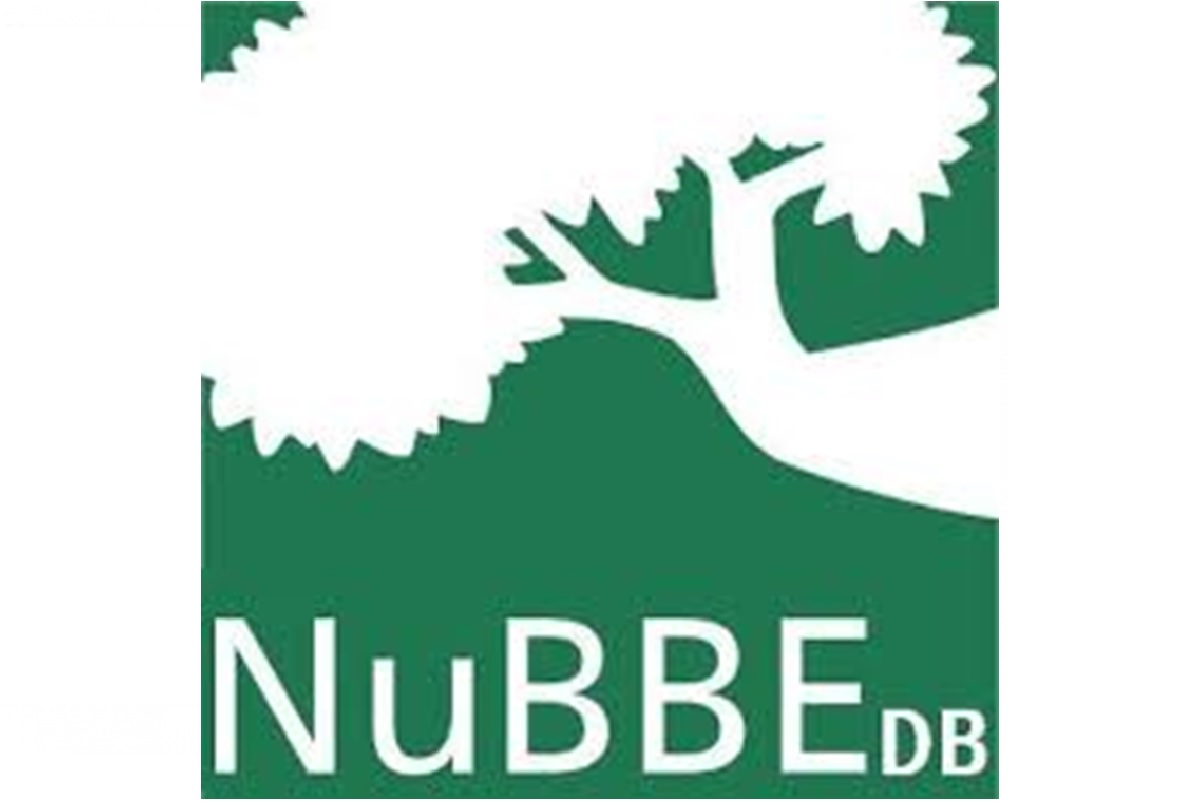By Maria Fernanda Ziegler | Agência FAPESP – October 31, 2019
 More than 54,000 compounds from natural products of Brazilian biodiversity are being gathered in a database with systematic information on occurrence, chemical structure and list of published articles.
More than 54,000 compounds from natural products of Brazilian biodiversity are being gathered in a database with systematic information on occurrence, chemical structure and list of published articles.
The collection was created based on an agreement between the Institute of Chemistry of the State University of São Paulo (IQ-Unesp) and the Chemical Abstracts Service (CAS), a division of the American Chemical Society.
Based on information contained in more than 30,000 articles published in scientific journals, a total of 51,973 native plant compounds in Brazil were reached. In addition to these compounds, another 2,219 that have been systematized in the database of Unesp’s NuBBE – Núcleo de Bioensaios, Biosíntese e Ecofisiologia de Produtos Naturais (Natural Products Bioassays, Biosynthesis and Ecophysiology Nucleus)
The compilation of information on natural products has been carried out for six years by researcher Marilia Valli, under the supervision of the coordinator of the National Institute of Science and Technology in Biodiversity and Natural Products (INCT-BioNat), Vanderlan Bolzani.
“The agreement will allow the creation of the first certified database with information on natural products from Brazilian biodiversity. Having this information organized in a broad and open database for the scientific community is extremely important as it will facilitate the research and creation of new chemical or medicinal products,” said Bolzani, full professor at IQ-Unesp in Araraquara , and member of the Superior Council of FAPESP.
With the initiative, substances isolated from Brazilian biodiversity will be gathered in a single database and identified in all laboratories in the country. “We will be able to glimpse everything that has been done in Brazil in an organized way. This is extremely important for both academia and business, ”said Bolzani, who is also a member of the BIOTA-FAPESP Program coordination.
From a list of scientific articles compiled by the NuBBE team, CAS – which has a large and dedicated database creation team – made the selection of the information, the link with the bibliographic reference source, the identification of the molecules. and preparing data transfer files so that you can incorporate this data into NuBBE Database.
Thus, by searching the molecule’s name, properties, or structure, for example, the system retrieves all information available in the scientific literature in an organized manner.
“The big difference of the deal is that CAS is licensing [donate] to NuBBE’s publicly accessible database. This will make the database larger,” said Denise Ferreira, national manager of CAS in Brazil.
According to Ferreira, due to CAS’s experience with selection and curation of chemical data, it will be possible to have greater detail of the substances.
The national manager of CAS emphasizes the originality of the donation, because usually the entity charges for access to its databases. “The donation came as a counterpart to the support of Brazilian science, after the National Museum in Rio de Janeiro was destroyed by a fire in 2018,” she said.
Brazil gathers approximately 20% of all species on the planet. Because of its rich biodiversity, the country has enormous potential for the production of knowledge and value-added products – including natural or derivative medicines, food supplements, cosmetics and pest and agricultural parasite control materials.
Bolzani also emphasizes the importance of this system for the formulation of public policies. “With the database, it will be possible to see that studies tend to always focus on the same species, and there is a huge diversity to be studied,” said Bolzani.
Bolzani told FAPESP that the inspiration for creating this database came when she attended a scientific congress in China in 2005. “I was fascinated by the database on natural products used by Chinese medicine. So we decided to try to create a robust database on Brazilian biodiversity, ” she said.
The systematization was based on the NuBBE Database, created six years ago through the collaboration between the Unesp nucleus and the Laboratory of Medicinal and Computational Chemistry (LQMC), led by Adriano D. Andricopulo, from the São Carlos Institute of Physics. University of São Paulo (USP).
“Our goal with the partnership is for the database to grow large enough to represent Brazilian biodiversity. We started the database with information about what was discovered in our lab. The use by several other researchers motivated us to expand the content to cover all Brazilian biodiversity. We contacted CAS, which has much of this data already compiled, and talked about this project that is being implemented, ” said Valli.
Link to original article: http://agencia.fapesp.br/colaboracao-internacional-expande-base-de-dados-sobre-produtos-da-biodiversidade-brasileira/31815/





